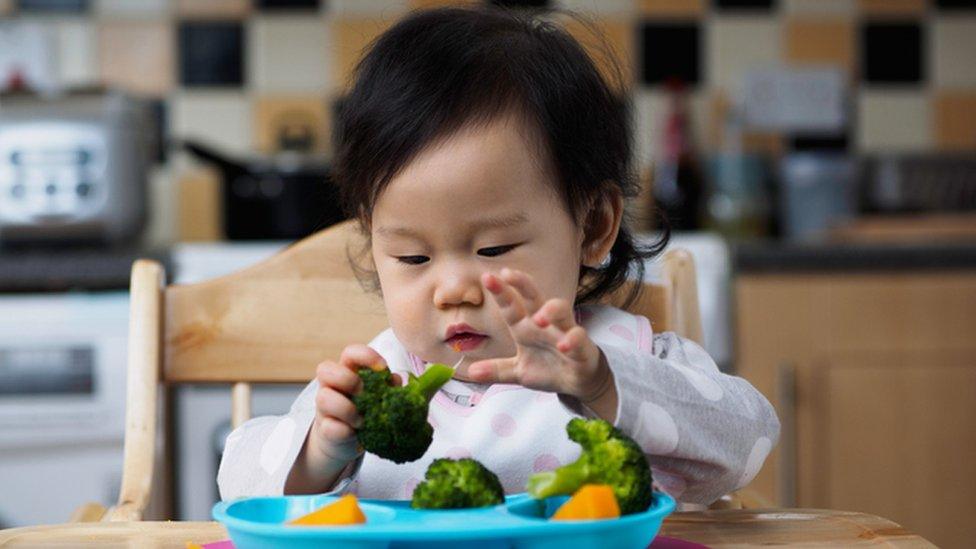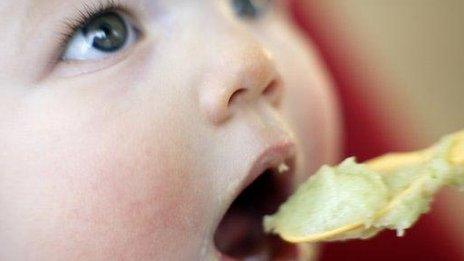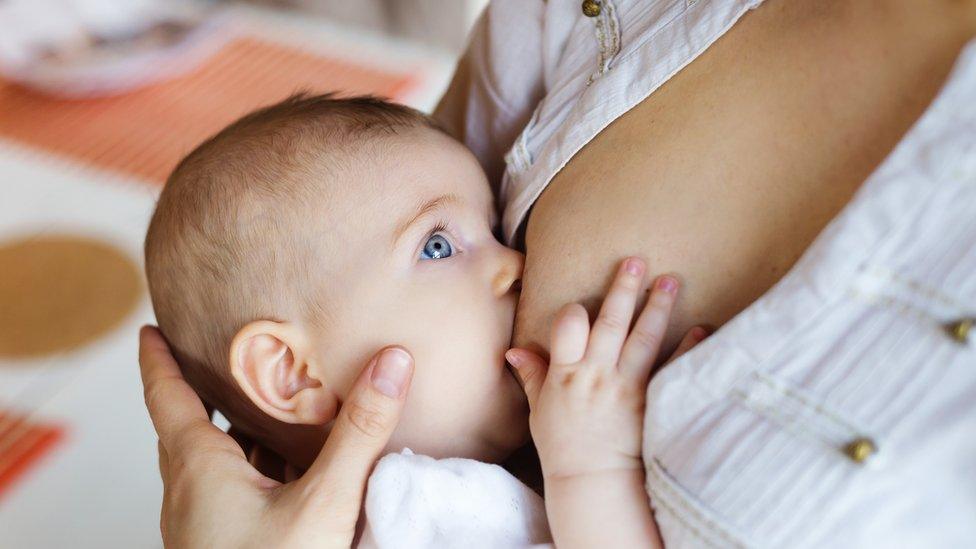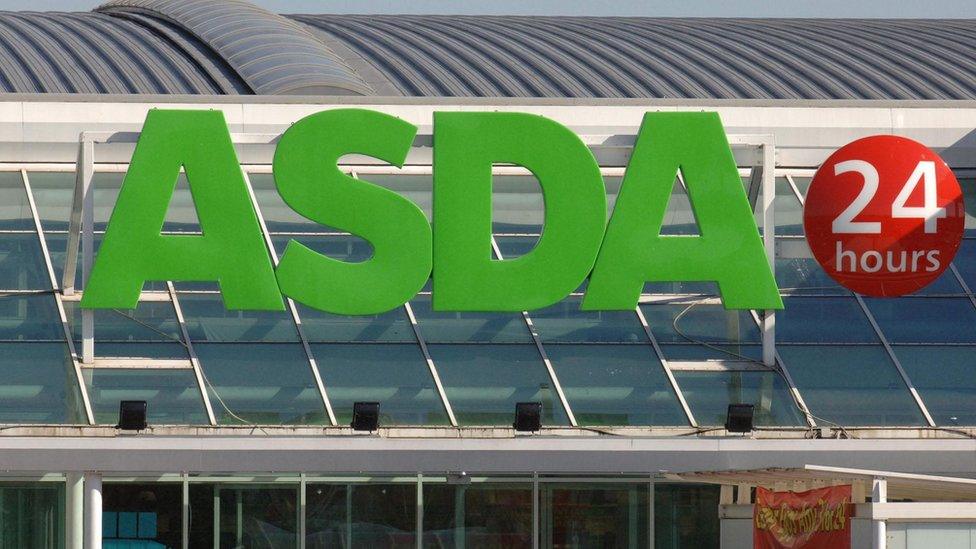Baby-led weaning 'not choking risk', finds Swansea uni
- Published

Allowing babies to feed themselves rather than spoon-feeding them does not increase the risk of choking, research at Swansea University has found.
A study involving more than 1,000 babies found feeding themselves from six months made no difference to how often they choked.
Researchers said so-called baby-led weaning, external has been gaining popularity.
The study has been published in the Journal of Human Nutrition and Dietetics.
The NHS advises feeding babies breast milk or formula until six months of age before allowing them to feed themselves solids, external, using their fingers,
Dr Amy Brown, associate professor in Child Health at Swansea University, said: "Following a baby-led weaning approach where you allow your baby to simply self-feed family foods, rather than preparing special pureed or mashed foods to spoon-feed, has been growing in popularity over the last 10 years in the UK and other countries.
"However, some people have expressed concerns over whether this is safe, and might put babies at risk of choking.
"This study adds to previous research conducted in smaller sample groups that also showed this approach does not increase the risk of a baby choking, and indeed in the UK, supports the Department of Health recommendation that babies can have finger foods from six months old."
The NHS said babies should always be supervised when eating and should also not be given certain foods including whole nuts and raw jelly cubes. , external
- Published7 February 2012

- Published5 August 2017

- Published29 September 2017
